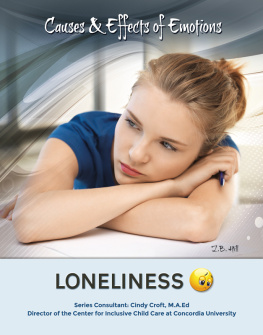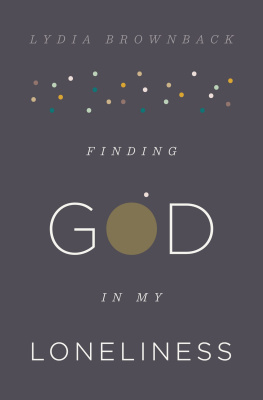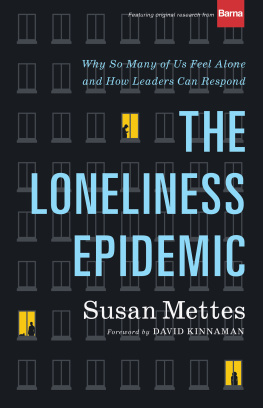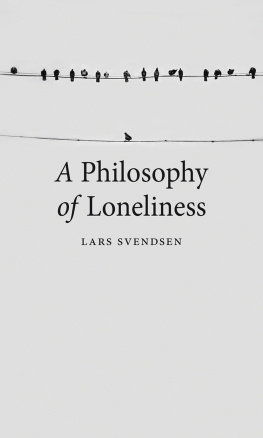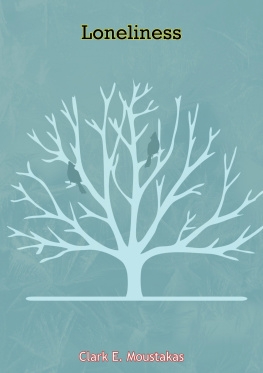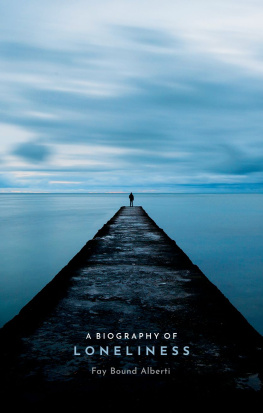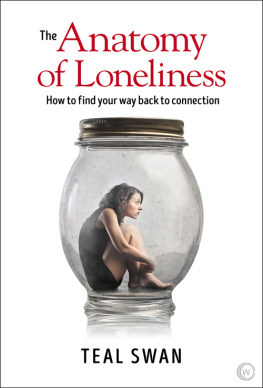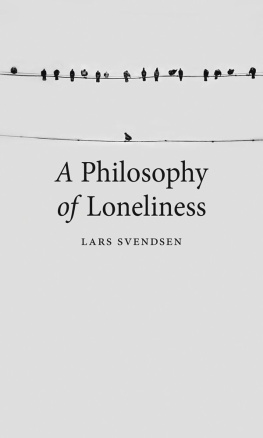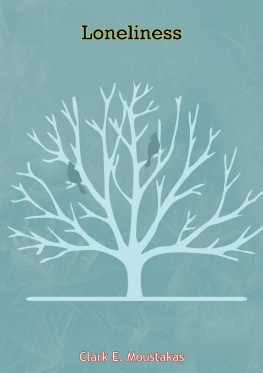The Great Belonging
How Loneliness Leads Us to Each Other
Charlotte Donlon
Broadleaf Books
Minneapolis
The Great Belonging
How Loneliness Leads Us to Each Other
Charlotte Donlon
THE GREAT BELONGING
How Loneliness Leads Us to Each Other
Copyright 2020 Charlotte Donlon. Printed by Broadleaf Books, an imprint of 1517 Media. All rights reserved. Except for brief quotations in critical articles or reviews, no part of this book may be reproduced in any manner without prior written permission from the publisher. Email copyright@1517.media or write to Permissions, Broadleaf Books, PO Box 1209, Minneapolis, MN 55440-1209.
Flood: Years of Solitude from Bad Alchemy by Dionisio D. Martnez. Copyright 1995 by Dionisio D. Martnez. Used by permission of W. W. Norton & Company, Inc.
Portions of chapter 42 were first published in The Mockingbird Blog, https://mbird.com/.
The names of some of the people in this book have been changed to protect their identities.
Unless otherwise noted, scripture quotations are from the New Revised Standard Version of the Bible, copyright 1989 by the Division of Christian Education of the National Council of Churches of Christ in the USA and used by permission. All rights reserved.
Cover design and artwork: Cindy Laun
Print ISBN: 978-1-5064-6196-0
eBook ISBN: 978-1-5064-6197-7
Contents
The book you are holding does not aim to cure your loneliness. Instead, The Great Belonging addresses loneliness as a companion. As you would with any companion, The Great Belonging inquires into lonelinessinto lonelinesss history, and habits, and fears. And in the company of The Great Belongings fearless and smart author, Charlotte Donlon, we, the readers, are allowed to indulge our interest in loneliness. I, for one, am interested in both senses of the term. I am curious about loneliness, and I am involved in loneliness, affected by loneliness, implicated in loneliness. I am companioned by it; I want to get to know it better.
Because loneliness touches the whole of life, The Great Belongings inquiry into loneliness becomes also a straightforwardly fascinating inquiry into lighthouses, body temperature, sex, Georgia OKeeffes Trees in Autumn, death, prayer, illness, and the communion of saints. One of Donlons key insights is that loneliness can open us up to ourselves and to the worldto other people, to poetry, to a tree. If you look back to the table of contents, youll see that the book is divided into five sections. The Great Belonging does not argue that those fiveourselves, others, art, places, and Godare merely antidotes to loneliness, though to be sure sometimes a painting, a friend, or the God we meet in the psalter does provide succor in our loneliness. Rather, The Great Belonging suggests that, like all my other companions, loneliness introduces me to people I wouldnt have met on my own, and to places I wouldnt have found. And loneliness helps me see things in familiar books or paintings or parks that I wouldnt have seen without lonelinesss tutelage. Our belonging to ourselves, to each other, to Godall those belongings can shush loneliness when she starts exaggerating and telling us tales. But equally, it is often through and with loneliness that we find our many other manifold belongings.
Donlon is not someone youd stereotype as lonely. Shes married. She has two pretty cool kids. She is engaged at her church. But she has always known loneliness, which suggests that loneliness is quite subtle. Loneliness is an indiscriminate visitor. She will not pass you by simply because you have a husband or a group of friends. Reading this book has helped me name something in my own life: I live alone and I often work alone, but I rarely feel lonely when alone. Rather, some of my loneliest lonesome strikes when I am with my best friend. When I am with her, I sense the stern reality that we are ultimately always separate from one anotherwe are always removed from others, even from those we know best and cherish most intimately. Donlons insistence on framing loneliness as something that might come to us all is helping me see more clearly that loneliness is not principally a feelingand its certainly not principally a feeling that only afflicts the widow or the divorcee. Rather, loneliness is a right responsean insightful responseto the ways intimacy and distance are insistently threaded together in all our lives.
I hope you and your loneliness will love this book as much as I do, and that the friendship between the two of you will be enriched by what you find in these pages.
Lauren F. Winner, author of Wearing God and Still: Notes on a Mid-Faith Crisis
Sometimes I wonder if loneliness resides in an extra, secret organ within the bodymaybe the size of a plum, a storehouse of dense alienation hidden deep within us. I wonder if God knew wed need a special place for our loneliness because we would have so much of it.
Everyone knows loneliness. Some may experience it more often. Some may find relief from it more quickly. Some may deny or avoid it. But I dont think any of us escapes its company entirely, and Im no longer sure we should, though I spent many years trying to outrun loneliness and her cunning charms.
Indeed, being human requires a touch of loneliness. None of us will ever be fully known by another person. None of us will ever fully know or belong to another person or even to ourselves. This doesnt mean we should stop trying to know, be known, and belong. Rather, it means we can accept loneliness as a normal companion. We can inhabit a posture of curiosity when we recognize loneliness, and our responses to it, as part of the human condition.
We can wonder how our different forms of loneliness and our belongings are connected. While I was finishing this book, we were sheltering in place at home because of the global pandemic. Loneliness of all kinds spiked. Many of us began to wonder: Is my relationship with God affected by my inability to visit my best friend? Is my relationship with myself affected because I cant chat with neighbors at the grocery store? Is my relationship with my husband affected because we havent been able to pray, worship, and take Communion at church? As everything begins to settle into different patterns, we can be curious about our new belongings. We can ask: Even though our familiar belongings are shifting and fading, what new belongings are being formed? What are some of the new ways Im belonging to myself, others, and God?
We can dip our toes into the waters of loneliness and test the temperature. If its comfortableor bearablewe can dive on in. If the water seems too cold, we can wade in slowly, one step at a time. When we are submerged and ready, we can swim around and discover how it feels to move toward and through the deeper waters. And we can do all of this knowing we can climb out of the water at any time.
We can dive for the bright plastic circles of insight laying way down deep on the bottom. We can float on a raft and consider the shapes of the clouds in the blue sky above. We can notice who else is in the water with us. We can study their strokes and determine how long it takes them to get from where they are to where they want to be. And, together, we can make our way to whatever might be waiting for us.
Thank you for wading into the waters of loneliness with me. I pray we arrive on the other side full of hope.


